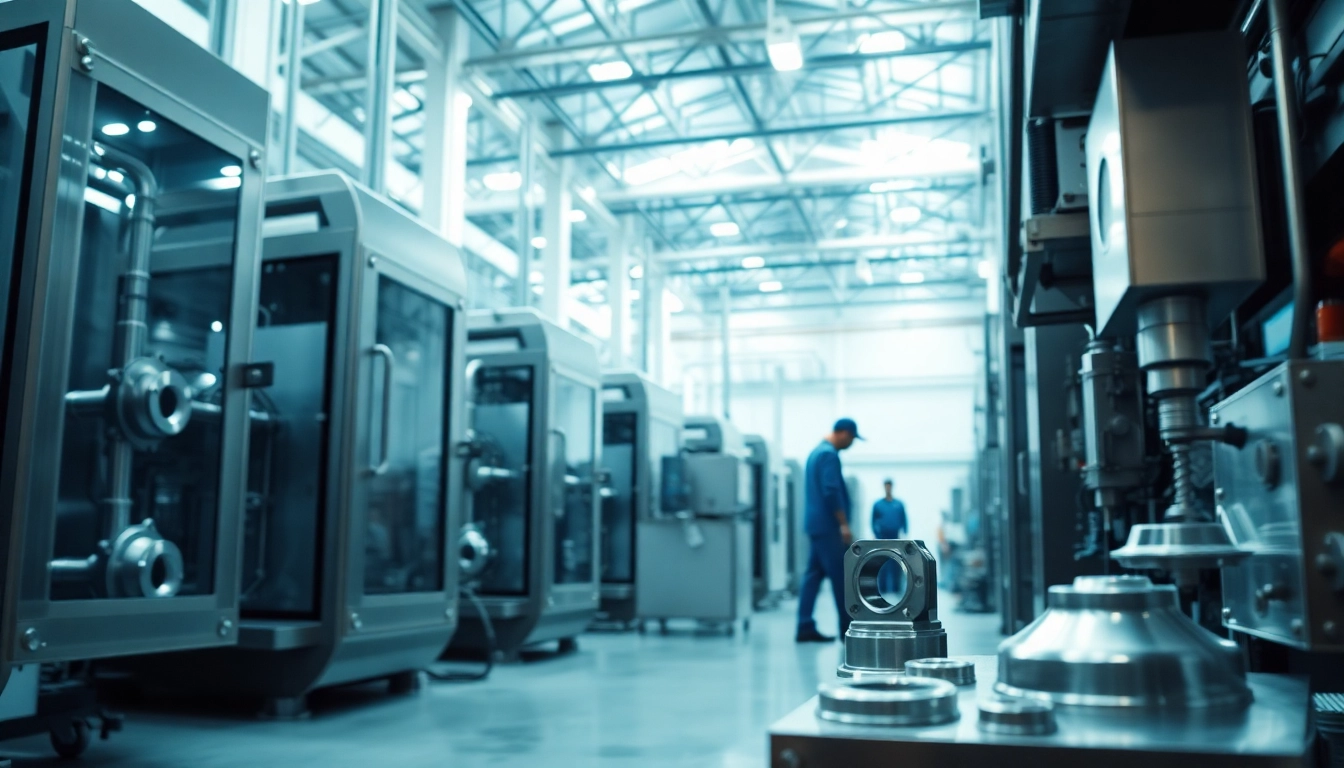Understanding Aluminum Die Casting in Malaysia
Aluminum die casting is a crucial manufacturing process that involves injecting molten aluminum into a mold to create various components. This innovative technique is particularly significant in Malaysia, where the demand for high-quality aluminum products is on the rise. The country is rapidly becoming a leading hub for die casting, with numerous manufacturers embracing advanced technologies to meet the growing market needs. When exploring options, aluminum die casting malaysia provides comprehensive insights into the local industry landscape, including trends, processes, and applications.
What is Aluminum Die Casting?
Aluminum die casting is a manufacturing process that utilizes high-pressure to force molten aluminum into a steel mold. The process ensures the production of lightweight and complex geometric shapes with high dimensional accuracy. This method is preferred across various industries due to its ability to deliver consistent part quality and efficiency in high-volume production runs.
Benefits of Using Aluminum Die Casting
- Cost-Effectiveness: Aluminum die casting reduces scrap rates and offers quick turnaround times, ultimately lowering production costs.
- Precision: The process yields components with tight tolerances, meeting stringent quality standards.
- Lightweight: Aluminum is lightweight yet strong, making it ideal for industries that prioritize efficiency without compromising strength.
- Corrosion Resistance: The natural oxide layer formed on aluminum provides excellent corrosion resistance, extending product lifespan.
Key Applications Across Industries
Aluminum die casting is utilized in various sectors, including automotive, aerospace, electronics, and consumer goods. In the automotive industry, for example, components like engine blocks, transmission cases, and housings rely heavily on this process due to their lightweight and durable nature. Additionally, the electronics sector leverages aluminum die casting for enclosures and heat sinks, ensuring reliability and performance in electronic devices.
The Die Casting Process Explained
Step-by-Step Overview of the Die Casting Process
The die casting process can be broken down into several key stages:
- Melting: Aluminum is melted in a furnace at high temperatures.
- Injection: The molten aluminum is injected into a pre-heated mold under high pressure.
- Cooling: The aluminum cools and solidifies within the mold, taking its shape.
- Ejection: The mold opens, and the cast part is ejected, ready for secondary operations.
Choosing the Right Die Casting Methods
There are several die casting methods, including:
- High-Pressure Die Casting: Ideal for high-volume production with excellent dimensional accuracy.
- Low-Pressure Die Casting: Suitable for larger components where control over metal flow is essential.
- Gravity Die Casting: Utilized for smaller quantities, focusing on lower production costs.
Importance of Quality Control in Aluminum Die Casting
Quality control is paramount in aluminum die casting, as it ensures product reliability and compliance with industry standards. Regular inspections and tests, such as non-destructive testing, help identify defects early in the production process, ensuring that only high-quality parts are delivered to clients.
Industry Leaders and Competitors
Top Aluminum Die Casting Manufacturers in Malaysia
Malaysia is home to several prominent aluminum die casting companies. Leading manufacturers like Sena Diecasting, Teknicast, and MDI have established themselves as reliable suppliers, each offering unique specialties and capabilities. Their commitment to innovation and quality has positioned them as leaders in the Malaysian market.
Comparative Analysis with Global Players
While Malaysia boasts a strong die casting industry, competing on a global scale requires continuous improvement and innovation. Companies in Malaysia often face competition from established players in countries like China and Germany, where advanced technologies and economies of scale can create pressures on pricing and quality. However, Malaysian manufacturers have the advantage of local markets and flexibility in production to adapt quickly to changing demands.
Emerging Trends Among Competitors
Some emerging trends in the aluminum die casting sector in Malaysia include:
- Smart Manufacturing: Integrating IoT and automation for enhanced operational efficiency.
- Sustainability Efforts: Implementing eco-friendly practices in production to reduce waste.
- Customization: Offering tailored solutions to meet specific client needs.
Challenges in Aluminum Die Casting
Common Issues Faced by Manufacturers
Despite its advantages, aluminum die casting comes with challenges. Manufacturers often face issues such as:
- Defects in Casting: Issues like gas porosity or shrinkage can affect part integrity.
- Cost Fluctuations: Variability in aluminum prices can impact overall production costs.
- Skill Shortages: Finding skilled labor with expertise in die casting techniques can pose difficulties.
Regulatory Compliance and Environmental Factors
Compliance with regulations is critical in die casting, particularly concerning environmental standards and workplace safety. Manufacturers must stay informed of local regulations and actively work to minimize environmental impacts through sustainable practices.
Overcoming Production Obstacles
To overcome production obstacles, companies can invest in technology upgrades, automate processes, and train personnel to enhance skillsets. Implementing lean manufacturing principles can also lead to improved efficiency and waste reduction in production.
Future Trends in Aluminum Die Casting (2025 and Beyond)
Technological Advancements Impacting the Industry
Looking ahead to 2025, the die casting industry is poised for significant technological advancements. Innovations such as 3D printing of molds, improved simulation software for process optimization, and increased automation in handling processes will likely reshape production techniques and capacities.
Sustainability Practices in Die Casting Manufacturing
As sustainability becomes a focal point for industries worldwide, die casting manufacturers in Malaysia will increasingly adopt green practices. This includes using recycled aluminum, minimizing energy consumption, and implementing waste management strategies to streamline operations and reduce environmental footprint.
The Path Forward: Innovations on the Horizon
The future of aluminum die casting is bright, with ongoing research into lightweight metal alloys and alternative materials that could enhance performance. As manufacturers continue to innovate and adapt, Malaysia’s position as a leading player in the aluminum die casting market is expected to strengthen, paving the way for growth and sustainability in the industry.










